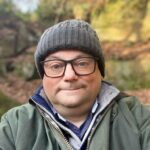Saturday Morning Workshops

Addiction debate session – An accepted SDOH ?
Andy Ryan
In this session the facilitator will get the ball rolling with a pitch about how addiction is an activity that occurs in relation to wider social determinates of health. This will reference the conditions in which people are born, grow, work, live, and age, and the wider set of forces and systems shaping the conditions of daily life. We will then discuss the societal and therapeutic role of empathy and how this can be internalised to promote and re-direct and change self-agency from being a destructive into a fertile force. We will also consider the role of stigma through the power threat meaning framework.
This discussion will look at developmental trauma, attachment, addiction as a pseudo relationship and much more. The greater amount of time will be for us to debate some of the ideas in smaller and larger groups, to create a safe and informative learning space for us all to process our collective knowledge and experiences.
Andy Ryan. My passion for the subject matter emerges from both lived experience of addiction and having worked in the sector for more than 20 years. I have recently joined a team that has launched the new NHS gambling harms clinics and utilise my experience of delivering addiction services linked to gambling, drugs, and alcohol both regionally and nationally to deliver the workshop. I have delivered training and supervised teams across the UK and in Europe on all matter’s addition, focusing on attachment theory, trauma awareness and my own integrative learning shaped over years of experience.
 Healing from Within: Empowering Your Journey to Wellness
Healing from Within: Empowering Your Journey to Wellness
Jacci Jones
Immerse yourself in "Healing from Within," a workshop led by Jacci Jones, a psychotherapist trained at the Manchester Institute of Psychotherapy. Jacci's own battle with stage 4 ovarian cancer has deepened her commitment to helping others find strength and wellness from within.
In this workshop, you'll gain insights from Jacci's dual perspective as a therapist and cancer survivor. Learn how to forge your personal wellness contract—a pledge to honour your wellness journey. Explore the power of empathy, the importance of a supportive community, and ways to enhance the mind-body connection.
This empowering workshop will offer you Jacci's profound insights into self-agency and its crucial role in overcoming life's challenges. You'll be guided on how to create a personal wellness contract, a commitment to take charge of your wellness journey with strength and determination.
Here's why this workshop is a must-attend:
- Formulate your own wellness contract.
- Discover methods to reinforce your mind-body connection.
- This workshop is a gateway to empowering your path to wellness.
- Join us to tap into the transformative healing that begins within.
Jacci Jones qualified in Transactional Analysis Psychotherapy in 2016, after studying for 4 years at The Manchester Institute For Psychotherapy.
She began her practice with clients in 2014, bringing in her rich background as a nursery nurse and over 13 years as a foster carer, offering family therapy as well as couples and children. Diagnosed with Stage 4 ovarian cancer in January 2022, Jacci has interwoven her personal health journey with her professional trainings to offer a unique and empathetic approach to supporting others through their own life challenges.
Jacci also hosts a weekly podcast with Bob Cooke called “The Therapy Show – Behind Closed Doors”
 Agency and Ani-Oppressive Practice. Can we have one without the other?
Agency and Ani-Oppressive Practice. Can we have one without the other?
Marilyn Wright
One view of personal agency is the ability to make our own decisions, of our own free will and construct a meaningful life. This workshop will explore the concept of agency as being located within anti-oppressive practice which accounts the socio-economic, cultural, and political systems in which our clients and ourselves are located and how these systems contribute to mental health outcomes.
The workshop will include some didactic material, experiential learning, and discussion.
Marilyn Wright TSTA(P), CTA(P), MSc in TA Psychotherapy.
I have been in clinical practice since 1998, qualifying as a Certified Transactional Analyst, Psychotherapy, in 2003. My clinical work has covered a wide range of issues, and I am experienced in working with couples.
My background is in community work and adult community education, and I have had experience working with community groups in developing skills to manage local projects, as well as developing a parenting skills course. Since 2007 I have supervised and taught TA, supporting trainees to qualify as CTA’s. I became a visiting trainer at MIP in 2017 and a principal tutor in 2019. My approach to adult education is to acknowledge and build on the wide range of life experience that trainees bring with them.
I have an interest in relational and developmental trauma, and attachment. I am keenly aware of social identity, and the impact of poverty, culture, and prejudice. I believe that it is important to acknowledge the wider social context to understand the individual.
 Where there’s a will, there’s an ego state – the business of self-agency
Where there’s a will, there’s an ego state – the business of self-agency
Sylva Joliffe
In this 2 hour workshop we will explore the concept of self-agency and how it has been addressed by TA writers since Berne’s ideas on autonomy.
We will investigate to what extent self-agency may allow us to break out of script or could be seen as an illusion to help us avoid uncertainty and reinforce our script.
Finally we will discuss how we can use the idea of self-agency in our work as therapists.
Sylva Joliffe, MSc., CTA, PTSTA, UKCP Registered Psychotherapist.
Sylva has 13 years of experience in private practice, working with a wide variety of adult clients from diverse backgrounds as well as providing supervision to practising therapists and trainees preparing for examinations via either the CTA or UKCP direct route. Sylva joined the Manchester Institute in 2021 and is now preparing for the TSTA examination. Prior to qualifying Sylva worked as a training consultant for many years in the financial services industry, qualifying as a performance coach before her passion for personal development led her to explore Transactional Analysis, and so began her TA Journey.
 In Search of Repair
In Search of Repair
David Hoskins
A Developmental and Relational Exploration of Addiction.
“Addicted individuals are acting as their own physicians to fix or repair what they are missing” (Flores 2004)
This workshop will focus on the relationship that addicted individuals have with drugs and alcohol.
We will explore how addiction can be viewed as an “attempt at self repair” by highlighting how early environmental failings contribute to addicted individuals being poorly equipped in their capacity for self-care. We will also explore the important developmental and relational functions that drugs and alcohol provide to addicted individuals.
The “self medication hypothesis” of addiction will be presented in order to help workshop participants understand why addicted individuals move towards specific substances more than others.
Concepts and ideas relating to developmental deficits will also be discussed and linked to increased vulnerability in developing an addiction to drugs and alcohol.
The workshop will be collaborative, interactive and experiential. Participants will be encouraged to engage in group exercises.
David is a UKCP accredited Integrative Psychotherapist and Addictions Counsellor. He initially trained at the Centre for Addiction Treatment Studies (University of Bath) and later at the Sherwood Psychotherapy Training Institute. David has worked in various residential treatment programs both in the UK and overseas and currently works in private practice in Stratford upon Avon.
 Idealisation in Relational Psychotherapy
Idealisation in Relational Psychotherapy
Dan Eastop
Idealisation transference as a normal and sometimes necessary part of a developmentally attuned relational psychotherapy.
In this workshop there will be an exploration of what is meant by idealised transference in the therapeutic process, as well as exploring the necessary parts of a developmentally attuned relational psychotherapy.
Dan Eastop is a certified, relational integrative psychotherapist (IIPA, UKCP, ICP) and supervisor with 15 years experience working in various therapeutic settings. He currently works in The University of Galway Counselling Service and in private practice based in the west of Ireland.
Saturday Afternoon Workshops
 Methods of a Relational Psychotherapy - WORKSHOP FULL
Methods of a Relational Psychotherapy - WORKSHOP FULL
Richard Erskine
In this workshop Richard will describe the relational methods of phenomenological inquiry, five levels of attunement, and the significance of therapeutic involvement. He will teach and provide examples and may also conduct a live therapy session to demonstrate the concepts and facilitate discussions within the group.
Dr. Richard G. Erskine is a certified Clinical Transactional Analyst and a Licensed Psychoanalyst. Originally trained in Client-Centered therapy with Robert Neville, associate of Carl Rogers, Richard also studied Gestalt therapy with both Fritz and Laura Perls. Richard has published published a dozen books and numerous articles on the theory and methods of psychotherapy. On three occasions he has been awarded the prestigious the Eric Berne Award for the advancement and refinement of Transactional Analysis Theory.
Clinical Supervision that empowers or impedes?
A workshop for supervisors and supervisees.
Andy Williams
This workshop is interested in “the gap” between the good intention of the supervisory endeavour and the actual experience of the supervisee, perhaps when the power goes awry!
Ekstein, in 1969, describes the blind, dumb and deaf spots of the supervisee – pejorative language for today, but he describes some useful arenas for exploration in supervision. This workshop will consider the bidirectional nature of these “spots” and see how we might apply them to the supervisor – especially when considering working in the broader cultural and sociopolitical context.
Keith Chinnock in his article from 2011 draws from Rowan’s work (1969) on Supervisory Styles. Again, these will be considered in light of the researched experience of the supervisee.
In summary, by the end of our time together, we will have explored:
- Supervision taking place in a sociopolitical and cultural context
- Issues of power in this context
- Research results around the lived experience of the supervisee
- The potential “blind, dumb and deaf” spots model – but now applying this to the supervisor
- Identifying our own or preferred supervisory style.
During the workshop, we will work as a whole group, in smaller groups and pairs.
We will do our best to attend to energy and our body states – and get some stretches and movement into the workshop.
This workshop is for all those who supervise and those who are supervised.
Attending to inclusivity, if you have particular learning needs, you are encouraged to let the facilitator know so he can see if adjustments or creativity are possible.
Andy Williams is a psychotherapist, clinical supervisor and trainer working from West Yorkshire. He is a doctoral student at the University of Chester with research interests around the lived-experience of the supervisee within clinical supervision. Andy is drawn to the outdoors, Eco-TA and issues of environment and psychogeography. He sees the world through a sociopolitical, cultural, emancipatory and pluralistic lens.
 The Master of Two Worlds
The Master of Two Worlds
Barbara Repinc Zupančič and Marjan Zupančič
Each of us writes their own story; it is a journey with ups and downs. Some chapters seem bright and clear, perfectly logical and understandable. We know where they are leading us. Other chapters come across as dark and everything strikes us as ambiguous, mystical, fascinating and terrifying at the same time. Yet this shadow part is linked to our dreams, creativity, intuition and soul. When we connect with it, our story can develop in an autonomous direction.
 In his analysis of world mythology, Joseph Campbell identified an archetype of a pathway between the conscious and unconscious realms underlying the universal pattern of all fairy tales, stories and myths. This pathway follows a specific script, a sequence of chapters, on which many of today's literary works and successful films are based. Our lives conform to this same script, although with minor variations.
In his analysis of world mythology, Joseph Campbell identified an archetype of a pathway between the conscious and unconscious realms underlying the universal pattern of all fairy tales, stories and myths. This pathway follows a specific script, a sequence of chapters, on which many of today's literary works and successful films are based. Our lives conform to this same script, although with minor variations.
Our clients frequently seek therapy during a period of their lives when their shadow selves are crying out for recognition and the ground of their familiar mental world is becoming unstable. The therapist often assumes the role of a mentor, providing “the necessary tools and inspiration for the protagonist to accept their call to adventure.”
This workshop will employ creative methods such as drawing, writing, collage and bodywork to explore and understand our life narratives, dive into the shadow zone and finally connect with ourselves as “the masters of two worlds”.
Barbara Repinc Zupančič – My primary education is in pedagogy and sociology of culture. Throughout my career I have worked in a variety of social service roles, including child and youth protection, domestic violence, prevention work with young people and drug abusers. I have had my own private psychotherapy practice since 2008. I have completed the Transactional Analysis training (Psychotherapy), I specialise in child and adolescent psychotherapy and the psychotherapy of trauma, with a strong interest in existential psychotherapy and creative supervision. I am an Integrative Supervisor and TA Supervisor – STA (P). I teach and supervise in Slovenia and abroad. In my free time, I enjoy gardening and various kinds of handicrafts.
Marjan Zupančič – I am a certified Integrative Psychotherapist (CIIP). My primary education is in political science and management. I was an army officer for 18 years. I have completed the Integrative Psychotherapy training at the Institute for Integrative Psychotherapy and Counselling (IPSA) in Ljubljana, Slovenia. I work in my own private practice. In the last year, I have been concentrating on working with couples. I am an avid photographer and motorcyclist.
In spite of the challenges, our life together has been very enjoyable. We have been foster carers in the past and are now adoptive parents to a teenage boy and a young lady. Our shared interests include skiing, travelling, hiking in the mountains or merely watching television together. Caring for our dog, cat and rabbit has brought us many happy moments.
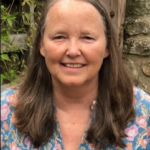 Developing greater awareness and compassionate self-care to manage erotic transference and counter transference in the therapy room.
Developing greater awareness and compassionate self-care to manage erotic transference and counter transference in the therapy room.
Sally Openshaw
This workshop will provide a safe and contained space for dialogue and discussion. We will start by normalising typical therapist reactions to erotic material that shows up in therapy. From here, we will look at a model for processing what happening in self and other and how to use these reflections in the room. A self-supervision guidance handout will be provided to enable you to step into the material with a confident and professional approach.
Sally Openshaw is an integrative psychotherapist, trainer and supervisor. She is a member of COSRT, UKCP and is the current President of IIPA. She will bring to this conference her specialist interest in sexuality diversity in her keynote speech and ways to work safely with erotic transference and countertransference in her workshop. Sally balances the demands of her professional working life with a weekly dose of grandchildren and gardening and a health growing in her veg patch.
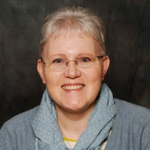 From Pain to Violence
From Pain to Violence
Julia Tolley
Managing risk and transferential enactments are key to safe practice. How do we encourage empowerment, maintain empathy and promote self-agency in our client work whilst protecting self and another?
In this workshop we look to the work of de Zulueta, 2006, Mitchell, 1988 and Mclaughlin, 1991 to understand enactments, establish how to maintain a safe Therapeutic relationship and manage boundaries, underpinned by Codes of Ethics, whilst ‘holding’ risk including suicidal ideation.
Knowing our strengths, limits and vulnerabilities to establish and maintain boundaries is the foundation of managing enactments in client process.
Julia Tolley - TSTA(P) CTA (P) MA -Integrative Counselling
UKCP Registered Psychotherapist and Supervisor, BACP (Accred), UKATA, EATA, ITAA, Psychotherapy Trainer and Examiner.
Julia is a Tutor at Manchester Institute for Psychotherapy, in addition she runs CPD events on various topics in Psychotherapy and Supervision. Passionate about the ‘intersubjective’ relationship, Julia explores the unconscious emerging through enactments and the management of risk that may arise thereafter in this workshop.
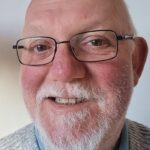 Empowerment, Empathy and Self-Agency: An Embodied, Relational Response within Group Process
Empowerment, Empathy and Self-Agency: An Embodied, Relational Response within Group Process
Pete Lavender and Lydia Noor
Empathy within an embodied, relationally held group process has the potential to create an environment for greater awareness. What can follow is the possibility for integration of disowned or disallowed aspects of self. Embodied relational process is a place for creativity, spontaneity, authenticity so that empowerment can arise within each of us. This can lead to an increased sense of self-agency.
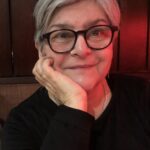 Pete and Lydia have been co-facilitating group process, for over fifteen years. Throughout this time, we have become more and more interested in our here-and-now embodied, relational response both to each other and towards members of the group. We are committed to creating a safe, holding and shame-aware space in which we invite you to explore aspects of empathy and heartlessness, empowerment and powerlessness, self-agency and collapse.
Pete and Lydia have been co-facilitating group process, for over fifteen years. Throughout this time, we have become more and more interested in our here-and-now embodied, relational response both to each other and towards members of the group. We are committed to creating a safe, holding and shame-aware space in which we invite you to explore aspects of empathy and heartlessness, empowerment and powerlessness, self-agency and collapse.
The workshop will contain experiential exercises, exploration of the between as well as the opportunity for individual work as it arises.
Pete Lavender is a director of the Scarborough Counselling & Psychotherapy Training Institute where he wrote and teaches the Relationally Centred Psychotherapeutic Counselling course. He also supervises and has over 30 years’ experience working with clients in both private practice and general practice in the NHS. His areas of special interest are in working with the relationship in therapy, attachment and personality styles.
Lydia Noor is a relational-developmental integrative psychotherapist, supervisor and trainer working in the East Riding of Yorkshire. Lydia is a past director of SCPTI where she led the Diploma in Relational Integrative Psychotherapy. Lydia has a private practice where she offers psychotherapy for adults, supervision, process groups and CPD. Her current interest is in exploring therapeutic use of self, particularly in relation to attachment, shame and the desire for connection and relationship.

